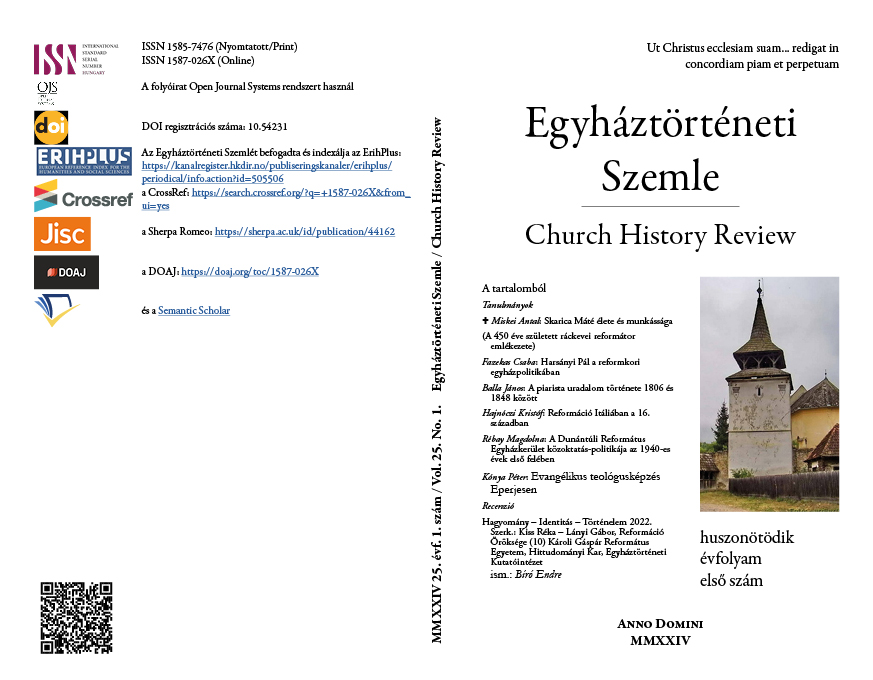Pál Harsányi in Church Policy of the Hungarian ‘Reform Era
DOI:
https://doi.org/10.54231/ETSZEMLE.2024.1.163Keywords:
‘reform era’, Church policy, mixed marriages, Pál HarsányiAbstract
Pál Harsányi was a lawyer in Pest, and in the 1830s and 1840s he had also many public activities. He had some experiments in literature, worked as a journal editor, and participated in several term of parliament. He was a typical ‘second-line’ public intellectual of the so-called ‘reform era’ in Hungary. He was attracted to liberal ideas from an early age and developed personal connections within the opposition. He was born in a Calvinist family; it is partly due to this that he took a special interest in the heated church political debates of the time. In the case of the regulation of mixed marriages, the liberal opposition accused the Catholic bishops of law-breaking and intolerance. Pál Harsányi in his public speeches and in a manuscript study, argued strongly for the equal rights of the churches and the separation of church and state, and called for the abolition of the medieval privileges of the Catholic Church. Meanwhile, Harsányi is believed to have been an agent of the secret police of the Habsburg Empire, writing confidential reports on his contemporaries. At the end of article, a summary of the relevant hypotheses is given.
Downloads
Downloads
Published
Conference Proceedings Volume
Section
Categories
License
Copyright (c) 2024 Fazekas Csaba (Szerző)

This work is licensed under a Creative Commons Attribution 4.0 International License.
The author(s) reserve the copyright of their work.
The Church History Review does not restrict the rights of authors to place their manuscripts or manuscript versions on preprint servers or other hosting. This applies generally to the following formats.
- Submitted version
- Accepted version (manuscript accepted by the author)
- Published version (Version of Record)









